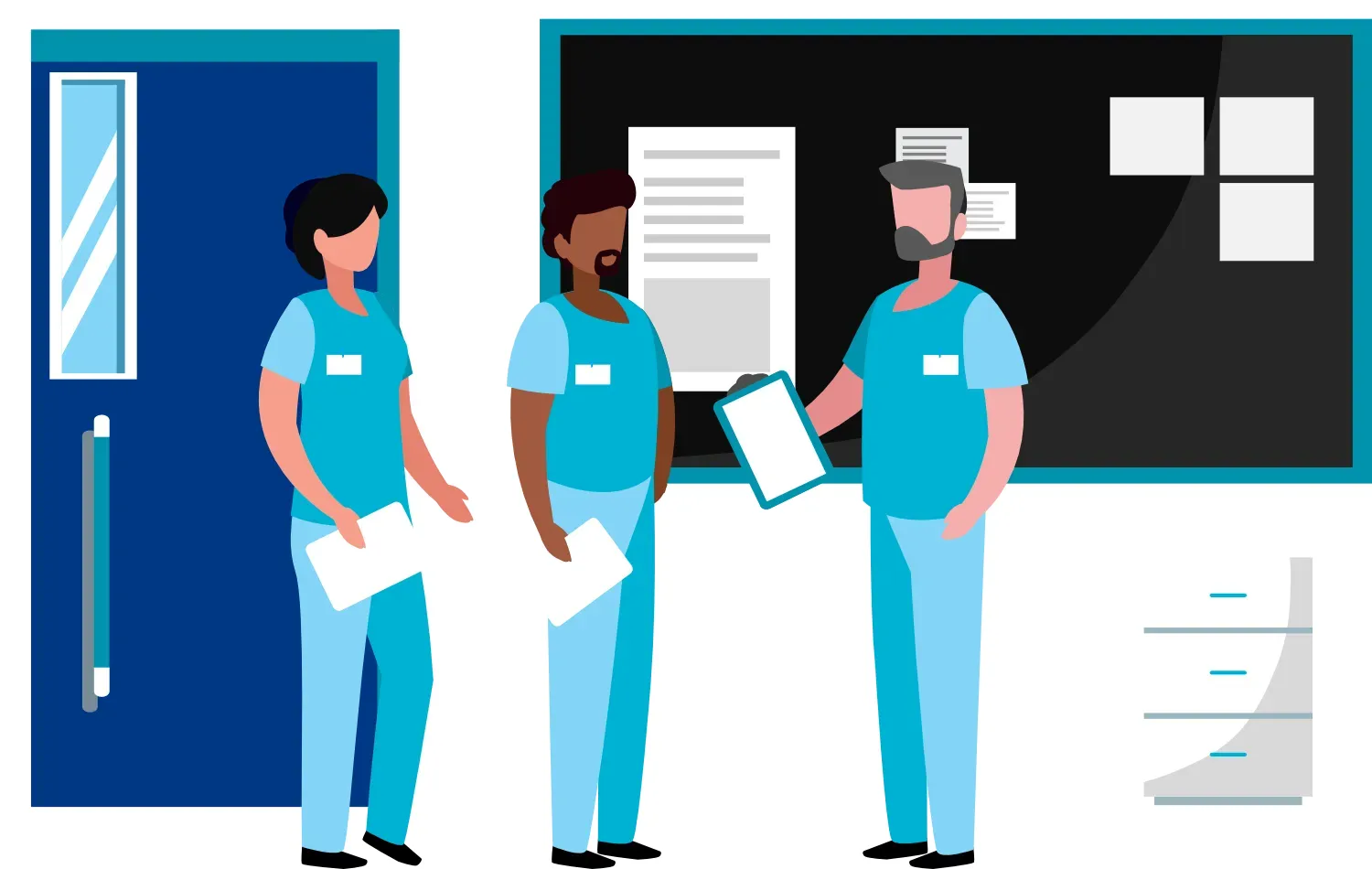Why AI Scheduling is the Future of Residency Programs

Discover how AI-driven scheduling is transforming residency programs by streamlining shift management, enhancing work-life balance, and ensuring compliance. Learn why AI is the key to the future of medical scheduling.
Why AI Scheduling is the Future of Residency Programs
Residency programs are the backbone of medical training, but their demanding schedules have long been a source of stress for residents and administrators alike. From balancing shift coverage to complying with work-hour regulations, managing residency schedules is a complex, time-consuming task.
Enter AI-driven scheduling—a transformative solution that's reshaping how residency programs operate. With its ability to automate, optimize, and adapt, AI scheduling is not just a tool for today but the future of residency programs. Here's why.
1. Automating Complex Scheduling Tasks
Residency scheduling involves balancing numerous variables: ensuring proper coverage, managing shift swaps, incorporating resident preferences, and adhering to accreditation requirements. AI-powered tools handle this complexity effortlessly, analyzing data and generating optimal schedules in minutes.
By automating these tasks, residency coordinators can focus on more strategic responsibilities, improving overall program efficiency.
2. Ensuring Fair and Balanced Workloads
One of the biggest challenges in residency programs is ensuring that workloads are distributed fairly among residents. Uneven schedules can lead to burnout and dissatisfaction.
AI-driven systems use advanced algorithms to distribute shifts equitably, taking into account factors like past assignments, preferences, and even individual capacity. The result? Happier, healthier residents who can perform at their best.
3. Enhancing Work-Life Balance
Residency is notorious for long hours and unpredictable schedules, often leaving little room for personal life. AI scheduling tools prioritize resident well-being by offering:
- Flexibility to accommodate personal requests.
- Predictable shift patterns.
- Efficient management of vacation and leave requests.
With AI, residents can enjoy a better balance between their professional and personal lives, reducing burnout and improving overall morale.
4. Adapting to Unpredictable Changes
Healthcare is inherently dynamic—emergencies happen, residents call out, and patient loads fluctuate. Traditional scheduling methods struggle to keep up with these last-minute changes.
AI scheduling systems, however, excel at adapting. They can reassign shifts in real-time, ensuring continuity of care without disrupting the entire schedule. This level of flexibility makes them indispensable in high-pressure environments like residency programs.
5. Ensuring Compliance with Accreditation Standards
Accreditation bodies enforce strict work-hour regulations to protect residents from overwork. Manually tracking these requirements is tedious and prone to errors.
AI-powered tools automatically monitor compliance, ensuring no resident exceeds their allowable hours. This not only protects the program's accreditation status but also safeguards resident well-being.
6. Improving Communication and Transparency
Miscommunication about schedules is a frequent pain point in residency programs. AI scheduling platforms centralize schedules, making them accessible to all team members in real-time. Features like automated notifications and alerts ensure everyone is always on the same page.
This transparency fosters trust and reduces the stress of last-minute misunderstandings.
7. Future-Proofing Residency Programs
As healthcare evolves, so do the demands on residency programs. AI scheduling is a forward-thinking solution that keeps programs agile and efficient. By embracing AI now, residency programs can:
- Stay ahead of industry trends.
- Attract top talent with better work-life balance.
- Adapt to future challenges with ease.
Conclusion: Embrace the Future of Scheduling
AI-driven scheduling isn't just a convenience—it's a necessity for the future of residency programs. By automating complex tasks, ensuring fairness, and adapting to the unpredictable nature of healthcare, AI empowers residency programs to operate more efficiently while prioritizing the well-being of their residents.
The future is here, and it's powered by AI. Are you ready to revolutionize your residency program? Book a demo to learn how we're making the future of scheduling a reality.